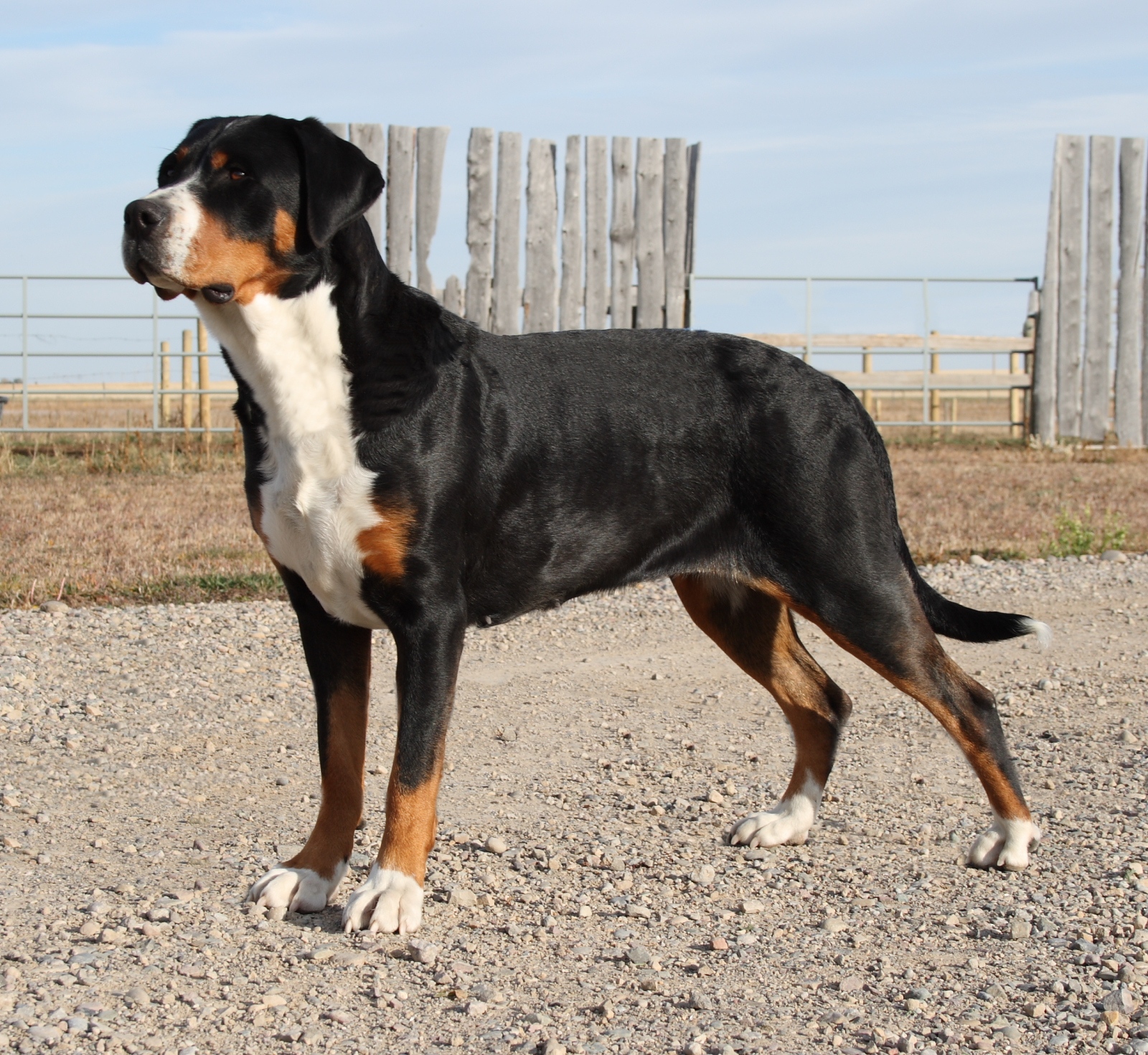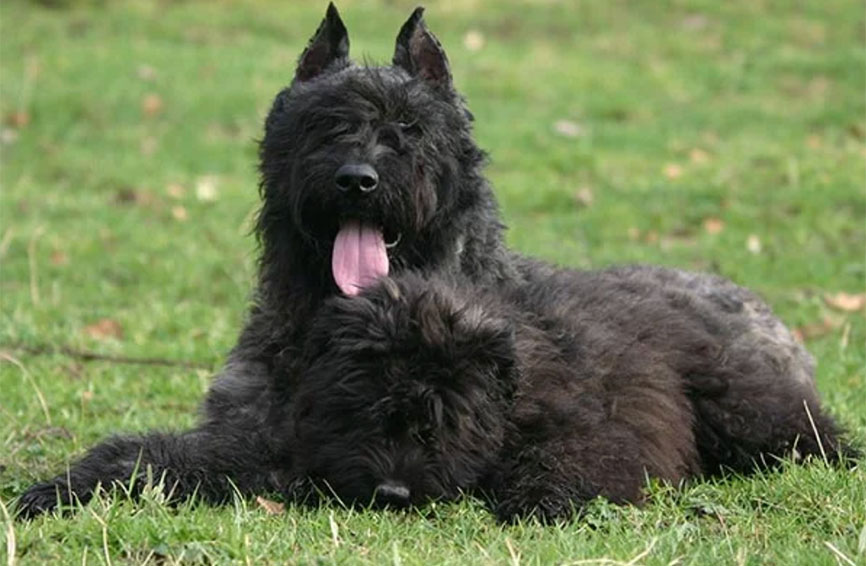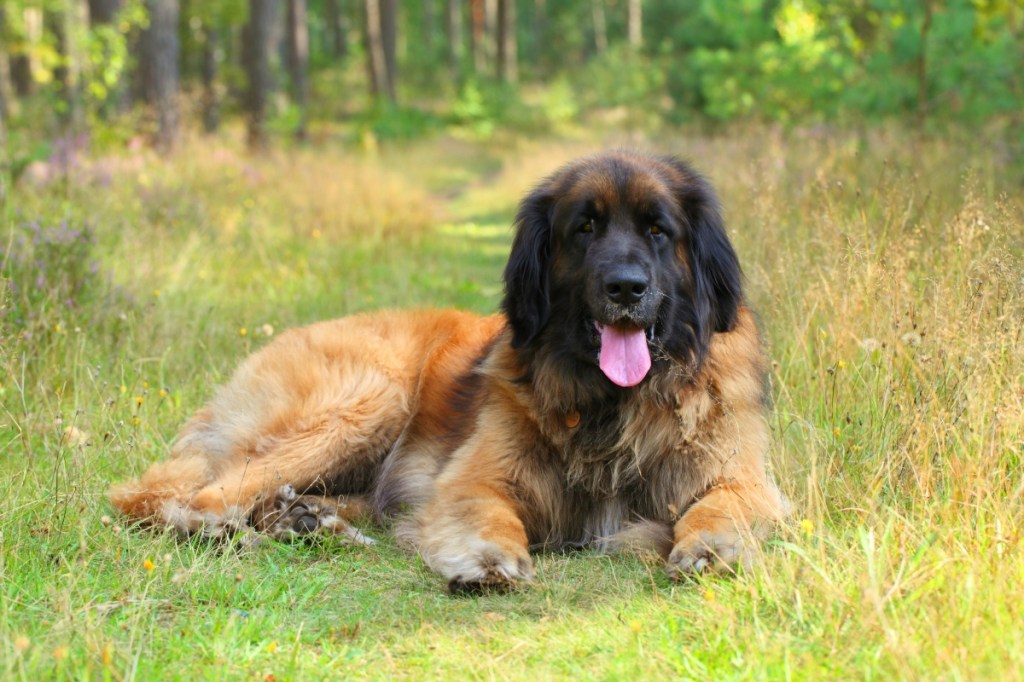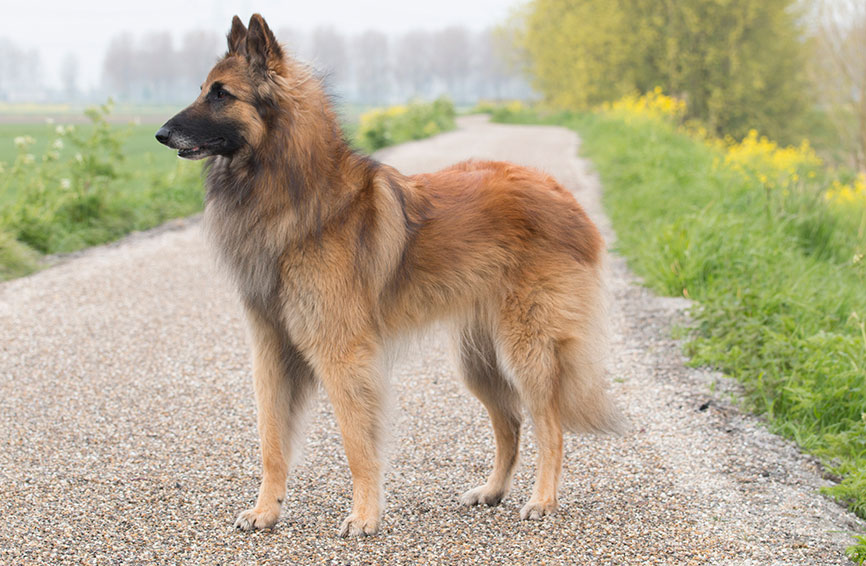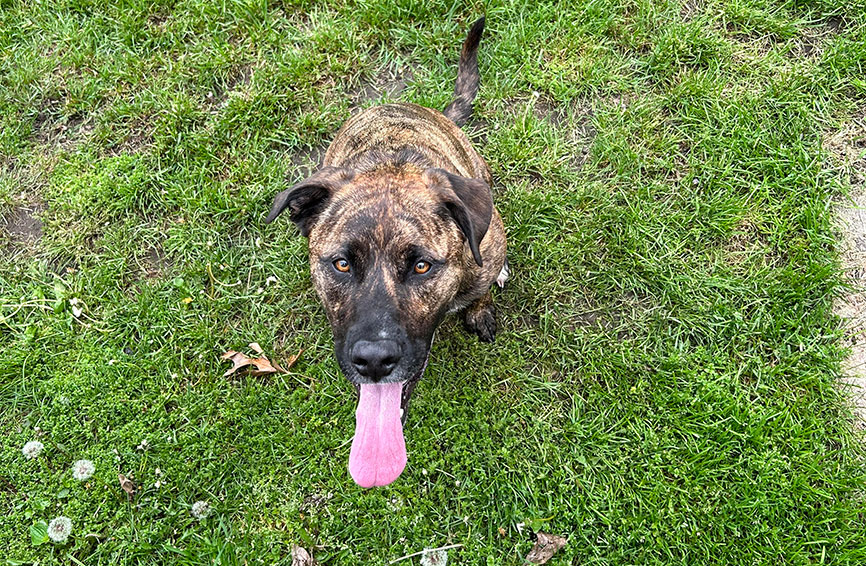Table of Contents
Introduction to Greater Swiss Mountain Dogs
If you’ve been looking for a faithful and family-friendly large dog to add to your household, perhaps the greater Swiss mountain dog would be the perfect addition. These dogs are sometimes referred to as the “Swissy,” and they are known for being gentle, loyal, and strong. They once served as working dogs on farms to herd cattle, but today, they are excellent family companions and do well in dog sports and competitions.
In this Healthy Paws breed guide, we provide details about the greater Swiss mountain dog breed to help you determine if this is the right pet for you and learn how to take the best care of your Swissy’s health.
Size of Greater Swiss Mountain Dogs
Swissies are large dogs. Males weigh 115 – 140 pounds and females weigh 85 – 110 pounds. They are Working Group dogs that vary in size based on exercise levels, genetics, diet, and overall health. These dogs typically take two to three years to reach their final adult size.
Here’s how big you can expect your greater Swiss mountain dog to get as the dog grows from puppyhood to adulthood:
| Weight Chart | 3 months | 6 months | 9 months | 12 months | 24 months |
| Male greater Swiss mountain dogs | 30 – 40 lbs. | 60 – 70 lbs. | 75 – 85 lbs. | 90 – 100 lbs. | 110 – 120 lbs. |
| Female greater Swiss mountain dogs | 25 – 35 lbs. | 50 – 60 lbs. | 65 – 75 lbs. | 80 – 90 lbs. | 90 – 100 lbs. |
Characteristics of Greater Swiss Mountain Dogs
Swissies have an eager-to-please temperament that is sweet and easygoing. They are generally good with other pets and kids, as they are non-aggressive. Although they are protective of a home and will bark if they hear something unexpected, they quickly warm up to new people, too. It is relatively straightforward to train a Swissy because of the dog’s intelligence level and eagerness to please people.
As you get to know a greater Swiss mountain dog’s personality, here’s what you can expect based on their breed characteristics.
| Breed Characteristic | Level (High, Medium, Low) |
| Affectionate with People | High |
| Good with Kids | High |
| Good with Pets | High |
| Need for Exercise | Medium |
| Energy Level | High |
| Intelligence Level | Medium |
| Able to Be Trained | Medium |
| Amount of Barking | Medium |
| Amount of Shedding | Medium |
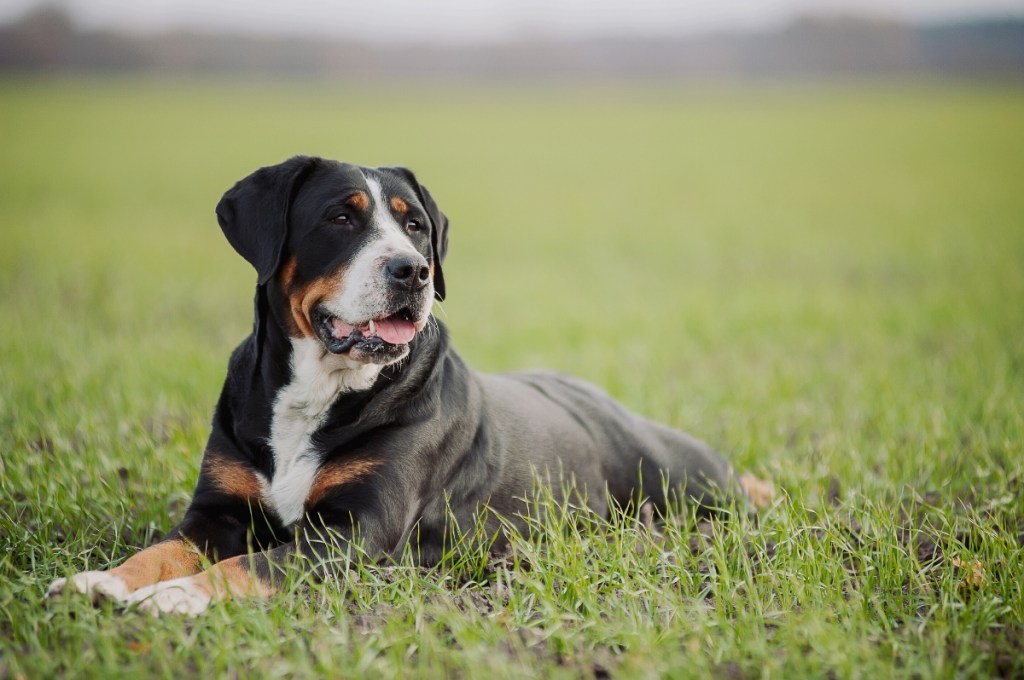
History of Greater Swiss Mountain Dogs
The greater Swiss mountain dog is one of the oldest dog breeds from Switzerland. They descended from war dogs that Julius Caesar’s legions brought over the Alps to help fight the enemy. The Swiss used these dogs to breed alpine mountain dogs, which led to the development of this breed. The Swissy is the largest and oldest of these descendants and was used on farms and pastures to haul meat and dairy products in carts to market.
The dogs’ numbers dwindled in the 1900s because machines largely replaced their jobs. The Swiss Kennel Club recognized the breed in 1909, and they were brought to the U.S. in 1968. The Greater Swiss Mountain Dog Club of America formed shortly after that, and the American Kennel Club officially recognized the breed in 1995.
Greater Swiss Mountain Dog Standard Information
Swissies have a striking appearance and are large, powerful, and confident. These sturdy dogs are heavy-boned and well-muscled, yet they are agile enough to be useful around a farm and labor in mountainous regions.
Here is an overview of the breed standard information for greater Swiss mountain dogs:
Head:
- Gentle and animated expression
- Almond-shaped, brown eyes
- Medium-size, triangular ears
- Flat and broad skull
- Large, blunt, and straight muzzle
- Teeth meet in a scissors bite
Neck, Topline, Body:
- Moderate-length neck that is strong and muscular
- Topline level from withers to croup
- Body is full with a slight tuck-up
- Thick tail from root to tip
Forequarters:
- Long, sloping, and strong shoulders
- Straight and strong forelegs
- Pasterns slope very slightly
- Round and compact feet
- Dewclaws may or may not be present
Hindquarters:
- Broad, strong, and muscular thighs
- Stifles are moderately bent and taper smoothly
- Well-arched toes that turn neither in nor out
- Dewclaws should be removed
Coat:
- Dense topcoat about 1 ¼ to 2 inches long
- Undercoat may be thick and showing
- Undercoat may be dark gray, light gray, or tawny
Color:
- Black topcoat
- Markings are rust and white
- Marking symmetry is desirable
- White markings on the head and muzzle
Gait:
- Good reach in front
- Powerful drive in the rear
- Movement with a level back
Caring for Greater Swiss Mountain Dogs
Typically, the best home for a Swissy is with an active family with a large house and yard, plus some experience handling dogs. They are not ideal dogs for first-time pet parents and require socialization from an early age and persistent training. They can excel at dog sports, such as agility courses and weight pulling with the right attention and care.
Here are some general tips for taking the best care of a greater Swiss mountain dog:
Best Living Environments:
- Not the best apartment dogs
- Homes with a fenced yard are preferable
- Prefer cold weather over hot weather
Type of Exercise:
- Moderate exercise is necessary
- Daily long walks
- Playtime in the snow
- Limit exercise during hot weather
- Limit running on hard surfaces until two years old
Mental Enrichment:
- Playtime with family members
- Agility training courses
Training Strategies:
- Train the dog to heel beside or behind the person with the leash
- Start training early due to the dog’s large, powerful size
Grooming Tips:
- Minimal shedding most of the time
- Twice-yearly blow-outs when the undercoat comes out
- Brush the coat once or twice weekly
- Bathe about once a month
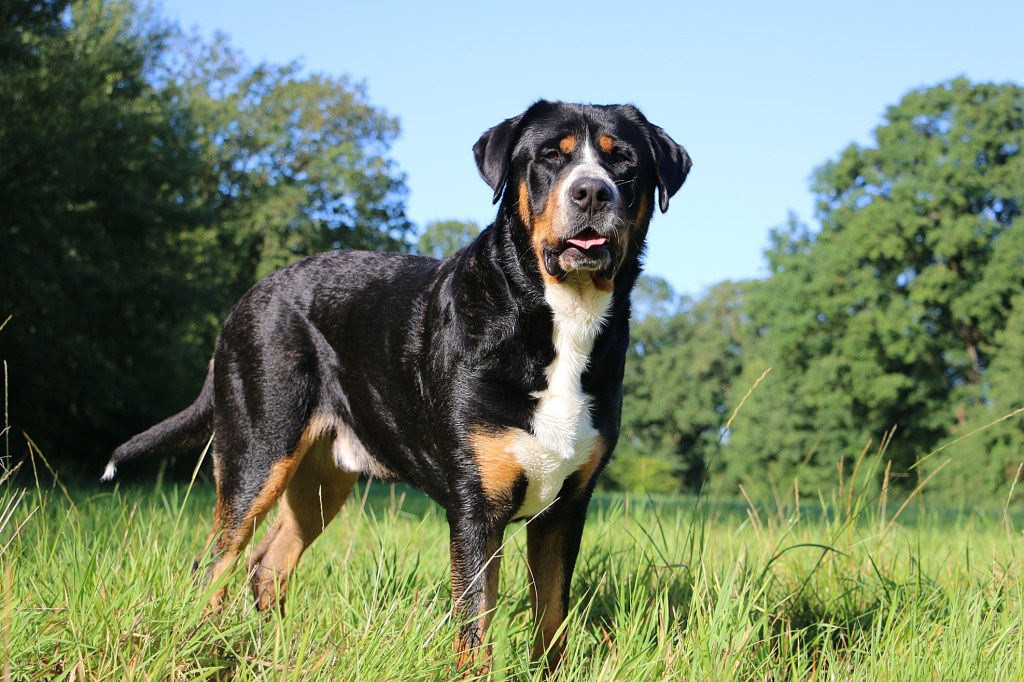
Common Health Problems of Greater Swiss Mountain Dogs
Swissies are generally healthy dogs but are still prone to certain medical issues because of their breeding and genetics. Also, large breed dogs, like the Swissy, are prone to certain orthopedic issues and bloat. Swissies have an average life expectancy of 8 to 11 years.
These are some of the most common health issues that arise with greater Swiss mountain dogs:
- Hip dysplasia
- Elbow dysplasia
- Patellar luxation (loose kneecap)
- Osteochondrosis dissecans
- Gastric torsion (bloat)
- Splenic torsion
- Cataracts
- Entropion (eyelid flipped inward)
- Distichiasis (abnormal eyelash growth)
- Panosteitis (bone condition)
- Swissy Lick (frantic licking and swallowing of objects, possibly related to gastrointestinal pain)
Diet and Nutrition for Greater Swiss Mountain Dogs
Greater Swiss mountain dogs typically need four to five cups of high-quality, dry dog food daily, divided into two meals. Select a dry food that is formulated specifically for large-breed dogs. These foods have a large kibble size to encourage chewing and reduce the risk of bloat, as well as glucosamine and chondroitin to promote healthy joints and reduce the risk of osteoarthritis.
Where to Adopt or Purchase Greater Swiss Mountain Dogs
If you want to bring a greater Swiss mountain dog into your life, the Greater Swiss Mountain Dog Club of America is one place to start. The American Kennel Club Marketplace offers listings for purebred Swissy puppies for sale. The Greater Swiss Mountain Dog Rescue Foundation is a nonprofit charity dedicated to re-homing these dogs and finding loving places for homeless pets to live. You can even find adoption resources on social media, such as the Swissies Looking for Homes Facebook page.
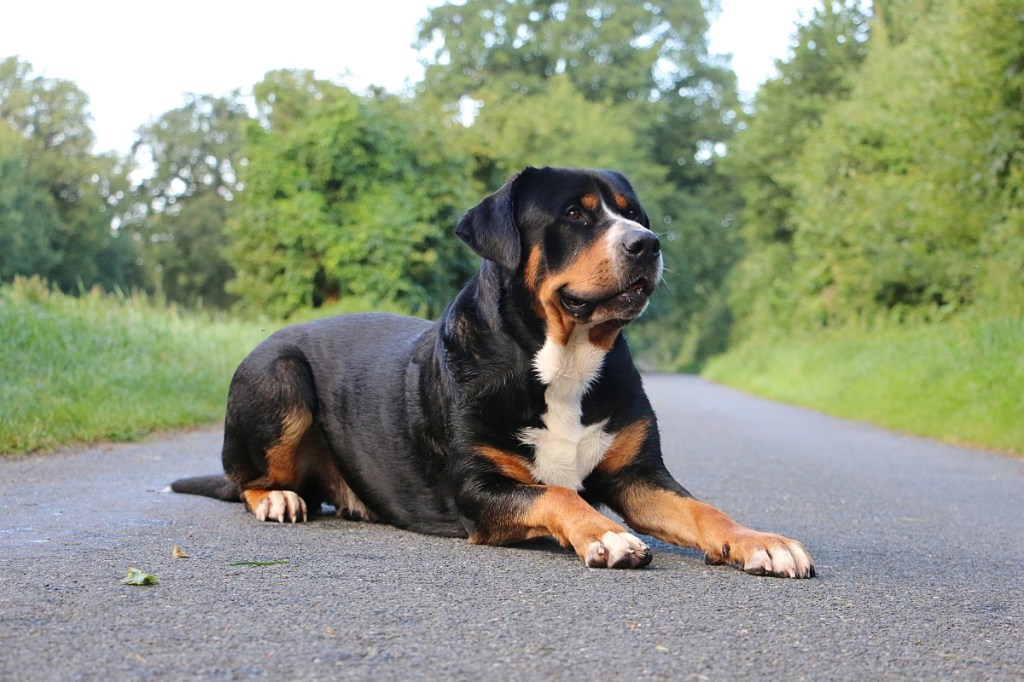
Related Breeds
If you like what you’ve been reading about the greater Swiss mountain dog, you may be interested in learning more about other related and similar breeds, too. Here are some other dog breeds to consider before making the final decision to adopt or purchase a dog:
- Appenzeller sennehund
- Bernese mountain dog
- Entlebucher
- Saint Bernard
- Rottweiler
Pet Insurance for Greater Swiss Mountain Dogs
Since large breed dogs like the Swissy have limited lifespans, you’ll want to make the most of every moment with your beloved pup. One of the best things you can do to take care of your Swissy’s health is to enroll your pup in a Healthy Paws pet health insurance plan so that you can provide the best veterinary care available.
Our dog insurance covers accidents, illnesses, breed-specific conditions, alternative care, genetic and hereditary conditions, and emergency care. For pet parents, we offer customizable pricing and flexible deductible and reimbursement options to tailor your monthly premium to fit your budget. When your Swissy needs to see the vet, simply submit a photo of the bill through our mobile app and get reimbursed through our plan. We are able to process most claims within just two days.
To get your greater Swiss mountain dog insurance quote, please visit our website today.
